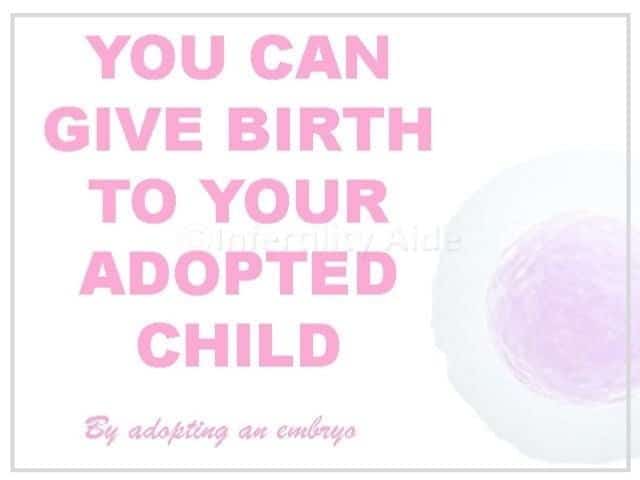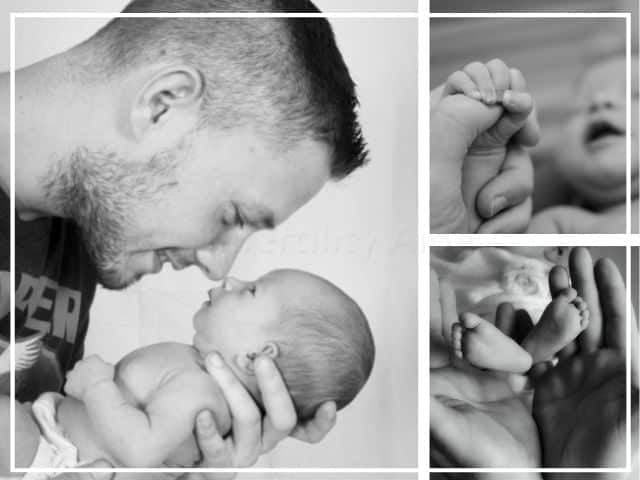Embryo adoption is the process of transferring the embryos left after one couple’s in vitro fertilization, to another person or couple.
These embryos are usually donated after the couple, for whom they were initially created, has conceived and carried a pregnancy to term. The decision to donate or destroy the embryos remains with the same couple.
Every day thousands of people who undergo in-vitro fertilization, end up with extra embryos that are frozen for future use, in case their first transfer is not successful or if they want to have more children later.
Process of Embryo Donation
Some couples may have upto 18-20 blastocysts in an IVF cycle, and obviously all of them cannot not be utilized. Only 1-2 embryos will be transferred in one cycle and the rest are frozen for future use.
If the couple for whom those embryos were created conceives in the first cycle, they may choose to keep those extra embryos frozen for future use, donate them for research, donate them to an individual or couple who is looking to have a baby, or ask to destroy them.
In cases of IVF with donor eggs and donor sperm, the embryos may be shared by more than one couple because there is no genetic connection to either of them.
For embryo adoption:
- Your endometrium will be prepared with controlled doses of estrogen for around 14 days, after which progesterone will be introduced
- Frozen embryos are thawed and prepared
- Embryo transfer will be done on around day 17 of the cycle. A small catheter will be passed through the vagina and cervix into the uterus and the embryos will be placed there.

Tests for the recipient
Before the donor embryos are transferred to your uterus, some tests will be performed.
You should be prepared for prenatal medical screening and provide complete medical and obstetrical history ahead of the embryo transfer. The below tests will be advised:
- Uterine evaluation for females – can be done with Sonohysterogram, hysteroscopy or hysterosalpingogram
- STI screening – may be recommended to check for any infectious diseases such as Hepatitis B, Hepatitis C, HIV, Syphilis, Gonorrhea, Chlamydia, Cytomegalovirus (CMV), etc.
- General health check-up – Age, overall health, and the presence of any systemic diseases will also be considered before embryo transfer.
Risks and Complications
The process of embryo transfer is considered very safe, and there are hardly any complications, albeit there is a very small risk of infection. However, if you go to a good, trusted facility, you should have nothing to worry about.
Pregnancy test will be done after 15 days. If it is negative, the medications will be stopped and your normal periods will resume.
If you do get pregnant, you will be given more progesterone to support your pregnancy for several weeks. Hereon, you will have the same risks or complications as any other woman of your age who conceived naturally.
There is no known negative effect of freezing and thawing the embryos; infact, some doctors report better success rates with frozen embryos because it gives them a better control of your uterine lining and they can transfer them under the most conducive of conditions.
What is the cost of embryo adoption?
If you decide to have donor embryos implanted in your uterus, you will have to pay only a fraction of the cost of IVF, because the procedure has already been done.
However, you have to pay the doctor fee, hospital charges, cost of medications, embryo thawing fee, etc.
The cost also depends upon the availability of suitable embryos—people of different races, nationalities usually ask for embryos of their own matching race, so it is easier for the baby to blend in.
Questions to ask before adopting an embryo
- How old was the female donor and how was the quality of her eggs at the time of embryo creation?
- What grade embryos were these, when they were frozen?
- How many couples have conceived from embryos in this batch?
- What was the live birth per embryo transfer rate at your clinic at the time the embryos were frozen?
- How long have these embryos been frozen? You might want a more recent batch (say in the past ten years) because the freezing and thawing protocols have significantly improved in the past decade.
Will it be my child?
Yes, legally it will be (in most parts of the world). Donated embryo means you will not have any genetic connection to the child but the birth certificate will bear the names of the intending parents as the official guardians.

The lack of a uniform legal framework to regulate the process of embryo donation and adoption means that these arrangements heavily rely on the trust between the clinic, the donor parents, and the couple that is adopting the embryo.
Can I meet the genetic parents of the donated embryo?
In some countries, the authorities are encouraging open donation, which means the child on reaching adult age, will be able to contact his genetic parents, if he so desires.
Some clinics also allow the genetic parents to choose the couples, who will be adopting their embryos.
However, in other parts of the world, only anonymous embryo donation is offered to avoid any legal and emotional conflicts later in life.
The IVF clinic uses the embryos for another couple only after the genetic parents have consented to it and they can closely match the physical characteristics of the intending parents with those of the embryos they have frozen.
Even though US governments have allocated millions of years to develop the HHS controlled embryo adoption program in the US, the awareness remains low.
Embryo adoption is not widely promoted or offered because it involves the complexities of the regular child adoption program, for a child that is not even born yet. Selecting an embryo that matches the physical attributes and other preferences of the intending parents is not always easy, and any mis-match may cause problems for both the baby and the parents.
Some of our clinics have better embryo adoption programs than others, and in some cases, they even have profiles of both parents along with their consent. However, mostly you will have to rely on the clinic’s or doctor’s judgement.
It is reasonable for people to prefer adopting an embryo over adopting a child as it allows them the experience of giving birth and to bond immediately with the baby. While IVF and surrogacy allow people to control, to a certain extent, the genetics of their child, adopting an embryo is riskier.
It is not a decision to be made lightly. You have to consider all the pros and cons, along with the costs and affordability of each procedure and then decide is embryo adoption is for you.
We currently offer embryo adoption in Mexico, India, Denmark and Cyprus. Prices start at $4,000. Get in touch to learn more.
Reviewed by: Dr. Raymundo Romero, IVF expert Mexico